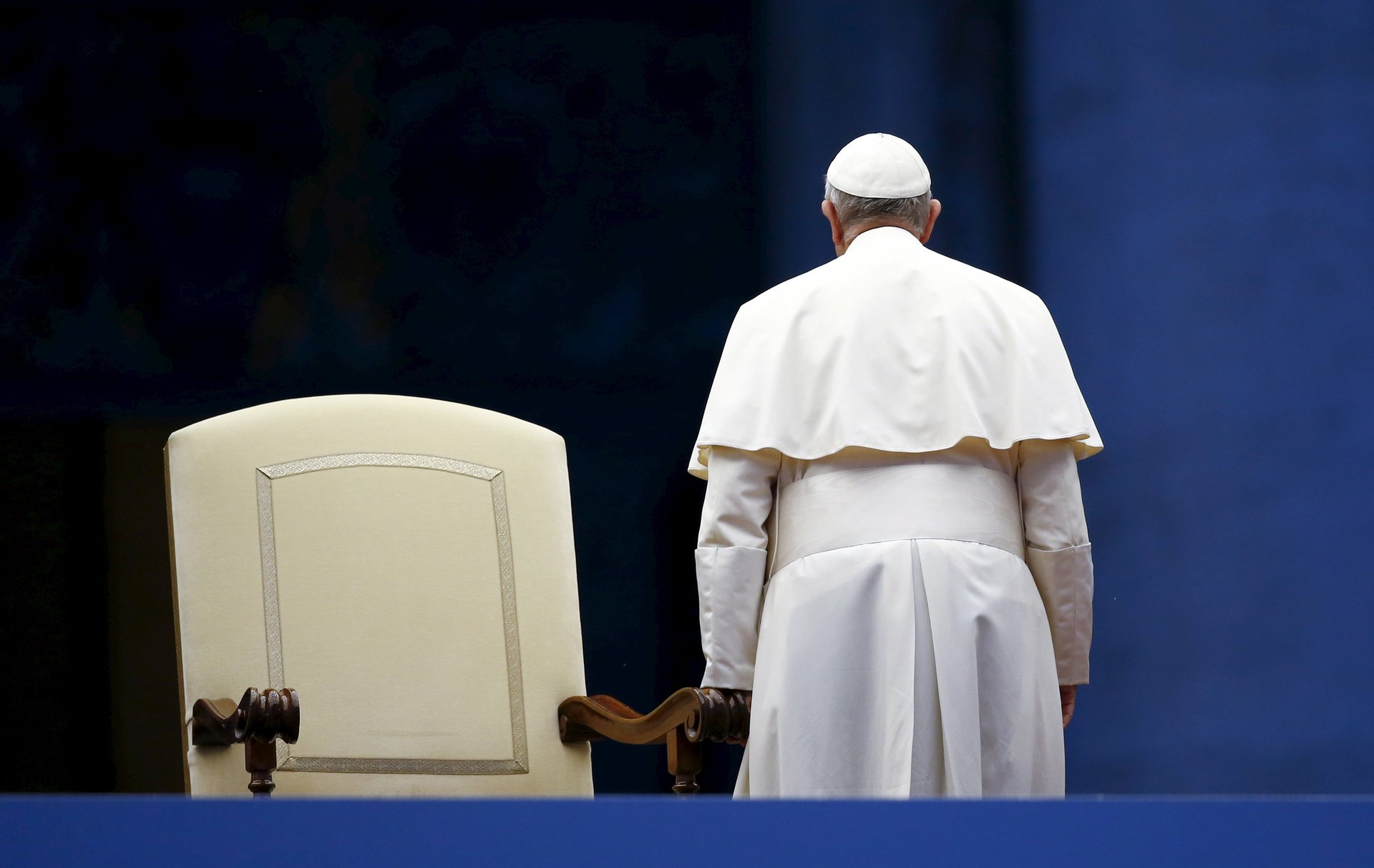If the pope loves gay people, he has a strange way of showing it
Pope Francis made another official proclamation this week, and it was predictably warm and fuzzy. The 256-page document, titled “Amoris Laetitia” (Latin for “The Joy of Love”), calls on Catholic leaders and followers to treat one another with kindness and empathy, and to remain respectful and honest about the challenges of domestic life.


Pope Francis made another official proclamation this week, and it was predictably warm and fuzzy. The 256-page document, titled “Amoris Laetitia” (Latin for “The Joy of Love”), calls on Catholic leaders and followers to treat one another with kindness and empathy, and to remain respectful and honest about the challenges of domestic life.
It contains some good news for divorced and remarried Catholics, who Francis hinted should be allowed to take communion again. But on the fraught issue of the LGBT community, he remains disappointingly rigid: “There are absolutely no grounds for considering homosexual unions to be in any way similar or even remotely analogous to God’s plan for marriage and family.”
This should surprise no one by now. Many progressive Catholics—and Christians more broadly—originally heralded the current pontiff as a progressive reformer and forward-thinker, someone courageous enough to lead the church in a bold new direction. While Francis has opened the door (however slightly) for desperately needed conversations on topics such as sex education, divorce, and climate change, his exhortations of love and tolerance are now wearing thin for many initially optimistic lesbians and gays. (It’s not really fair to lump trans people in here, since there has never been any suggestion that the pope was budging on that topic.)
On the surface, preaching compassion for all—including those attracted to members of the same sex—might seem like a step in the right direction for an institution that has a long history of anti-gay rhetoric. But there’s something a little unsettling, condescending even, about what he’s suggesting now: that you can respect the dignity of an individual while also denying that person his or her fundamental rights.
The distinction between kindness and codified rights is an important one.
Kindness, like the papacy itself, is fleeting. Francis will not be pope forever; the pope before him showed no inclination to offer a more liberal interpretation of Catholic doctrine, and there’s a good chance the pope after him won’t either.
Rights, such as the right for gay people to marry or adopt children or for people to be free to accurately express their gender identity, are far more lasting.
To be told that you are loved and yet made to feel somehow lesser is confusing and frustrating. Because when you are explicitly denied the right to marry, or adopt children, or accurately express your gender identity, you are in fact being treated as lesser.
The sentiment “love the sinner but hate the sin” has long been a fallback for anti-gay Christians who twist themselves into rhetorical knots attempting to reconcile Jesus’ teachings of tolerance with retrograde interpretations of the Bible. It may have sounded progressive once upon a time, but against all the other advances society has made to accept the LGBT community into the mainstream, it now feels like a terribly backward way of looking at things.
I am confident that the current pope truly does believe that all people deserve to be shown love. But when it comes to my rights, I’ll take laws over love any day.